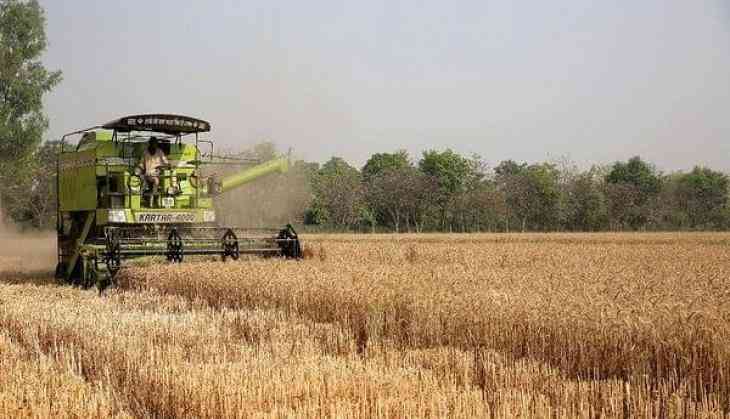
The G-20 Presidency will be a golden chance for India to correct the long-standing anomalies that go against the developing countries, especially in the domain of agriculture and food subsidies, SBI Research said in its latest report.
India is going to hold the G20 Presidency from December 1, 2022, to November 30, 2023.
G20 economies currently account for 85 per cent of global GDP, 75 per cent of international trade and two-thirds of the world population, making it the premier forum for international economic cooperation.
The domestic support per farmer in the US in 2016 was as much as USD 60,586, while in the UK it was at USD 6,762, which must have jumped following the pandemic, the report argued. Even China's subsidy support was almost four times of India's.
One of the critical issues in agriculture is the subsidies. High subsidies to farmers in developed countries led to a huge competitive advantage for their agricultural products in the global market.
"For India, even we consider the post-pandemic numbers, it is hardly USD 600. Thus, it is perhaps the other way around in terms of agricultural subsidies if we engage in a debate of developed and developing countries," it said.
Under the WTO rules, agricultural subsidies creating trade distortions are not allowed.
The subsidy limit for developed and developing countries is at 5 per cent and 10 per cent of their agricultural production, respectively.
"...discounting the agri-output numbers at 1987 prices (the reference year), using the GDP deflator show that India will need to cut its subsidy by as much as 92 per cent from current levels if it were to bring subsidy to 10 per cent of agri output / WTO-mandated targeted subsidy! This is thus a theatrical absurdity as it will require India to eliminate all support to the vulnerable segment of the rural economy," the report said.
This estimate was made after considering various subsidies given by the Indian government including food, fertiliser, power, irrigation, market intervention scheme and price support scheme, crop insurance, credit interest subsidy as well as income support under PM Kisan.
SBI Research believes that the reference year of WTO (1987) is outdated and it should go by the G-33 proposal that "proposes to use the discount factor as a trimmed 3-year rolling average for every year, based on the preceding five-year period excluding the highest and lowest price."
Under this proposed mechanism, the report said India will need to cut its subsidy by 31 per cent from current levels if it were to follow the proposed WTO-mandated targeted subsidy.
"Interestingly, India has done remarkably well before Covid as its subsidy was even lower than the WTO mandated agricultural subsidy during FY18-20. The Covid significantly disrupted India's quest as the free foodgrain support for 80 crores vulnerable population was a policy decision that saved the economy from many bruises during the pandemic," the report added.
(ANI)
Also Read: Indian stocks start Friday's trade with marginal gains


